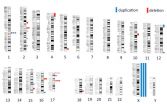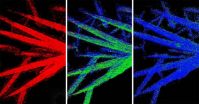A bad buzz: Men with HIV need fewer drinks to feel effects
2015-04-21
(Press-News.org) New Haven, Conn. -- Researchers at Yale and the VA Pittsburgh Healthcare System compared the number of drinks that men with HIV infection, versus those without it, needed to get a buzz. They found that HIV-infected men were more sensitive to the effects of alcohol than uninfected men.
The study published April 17 in the journal AIDS and Behavior.
Researchers know that HIV and alcohol can make for a dangerous mix. "Alcohol makes it more likely you're going to get HIV due to risky sexual behavior," said Dr. Amy C. Justice, professor of medicine and public health at Yale. "Once people have HIV, alcohol makes it less likely they will take their antiretroviral medications." Drinking, like HIV infection, also harms the liver and immune system.
To examine the effects of alcohol on HIV patients, the Yale team and their co-authors reviewed data on more than 2,600 men enrolled in the Veterans Aging Cohort Study, an ongoing multi-site study of veterans. They analyzed survey responses from both HIV-infected and uninfected veterans who were asked how many alcoholic drinks it took for them to feel a buzz or high. The researchers also compared responses from HIV-infected men with unsuppressed or detectable HIV infection versus those with suppressed HIV.
The study found that HIV-infected men with detectable virus were more sensitive to the effects of alcohol than both HIV-infected men with suppressed virus and uninfected men. On average, the HIV-infected individuals with detectable virus got a buzz from imbibing just a quarter less of a drink than the others.
"All else equal, people who have HIV infection have a lower tolerance for alcohol than similar people without HIV infection," Justice explained. It's not clear, she added, whether HIV-infected individuals are simply more susceptible to alcohol or if they achieve higher concentrations of alcohol in the blood from the same number of drinks.
The findings suggest that there is no clearly safe level of alcohol consumption for people with HIV, and that providers should counsel their HIV-infected patients that they are more susceptible to the harmful effects of drinking, say the researchers.
INFORMATION:
Other authors include Kathleen A. McGinnis, David A. Fiellin, M.D., Janet P. Tate, Robert L Cook, M.D., R. Scott Braithwaite MD, Kendall J. Bryant, E. Jennifer Edelman, M.D., Adam J. Gordon, M.D., Kevin L. Kraemer, M.D., and Stephen Maisto.
The study was by the National Institutes of Health: National Institutes on Alcohol Abuse and Alcoholism (U24-AA020794, U01-AA020790, U01-AA020795, U01-AA020799; U10 AA013566-completed and in-kind by the U.S. Department of Veterans Affairs.
Citation: AIDS and Behavior.
http://link.springer.com/article/10.1007/s10461-015-1053-7
ELSE PRESS RELEASES FROM THIS DATE:
2015-04-20
DALLAS, April 20, 2015 -- For the first time, the American Heart Association has issued recommendations for healthcare providers treating people older than 40 with congenital heart disease.
"People born with congenital heart disease are living longer and fuller lives than ever before, and there are now more adults than children with congenital heart disease," said Ami Bhatt, M.D., lead author of the new scientific statement published in the American Heart Association journal Circulation.
"These patients often have a sense that their heart has been 'fixed' and they don't ...
2015-04-20
WASHINGTON, DC - In order to help doctors treat the millions of people who experience their first seizure each year, the American Academy of Neurology and the American Epilepsy Society have released a new guideline on how to treat a first seizure. The guideline is published in the April 21, 2015, print issue of Neurology®, the medical journal of the American Academy of Neurology (AAN), and will be presented at the AAN Annual Meeting in Washington, DC, April 18-25, 2015, which is the world's largest gathering of neurologists.
One in 10 people worldwide have a first ...
2015-04-20
WASHINGTON, DC, APRIL 20, 2015--A new guideline released today by the American Academy of Neurology (AAN) and the American Epilepsy Society (AES) found that administering an antiepileptic medication immediately after a first seizure reduces the risk of having another seizure within two years. The guideline, authored by Allan Krumholz, MD, a professor of neurology at the University of Maryland School of Medicine and physician at the Maryland Epilepsy Center at the University of Maryland Medical Center, is the first to address treatment of a first seizure in adults. A previous ...
2015-04-20
NEW YORK, NY (April 20, 2015) -- A significant proportion of children with chronic kidney disease (CKD) have unsuspected chromosomal imbalances, including DNA anomalies that have been linked to neurocognitive disorders, according to a new Columbia University Medical Center (CUMC) study. The findings suggest that routine genetic screening of children with CKD could lead to earlier and more precise diagnoses, as well as to more personalized monitoring, prevention, and treatment. Details of the study were published today in the online issue of the Journal of Clinical investigation.
"With ...
2015-04-20
Every year, more than 120 million prescriptions are written worldwide for thiazide drugs, a group of salt-lowering medicines used to treat high blood pressure. These drugs are often work very well, and over decades have saved hundreds of thousands of lives.
But in some patients, thiazides are not effective; in others they lower blood pressure for a while and then stop working. The reasons for this have remained a mystery. Now, a new study by researchers at the University of Maryland School of Medicine (UM SOM) has revealed a key mechanism for this failure.
Paul Welling, ...
2015-04-20
Following a first seizure, physicians should discuss with patients whether it is appropriate to prescribe medication to reduce risk of another seizure, according to new guidelines released at the American Academy of Neurology meeting.
The guidelines, which were a collaboration of authors at several North American medical institutions including NYU Langone Medical Center, found adults who experience a first seizure may have risk of another seizure that's greatest within the first two years. Adults with prior neurological trauma, abnormalities on EEGs and imaging may be ...
2015-04-20
Access to high-quality medicine is a basic human right, but over four billion people live in countries where many medications are substandard or fake. Marya Lieberman of the Department of Chemistry and Biochemistry at the University of Notre Dame and Abigail Weaver a postdoctoral associate in the University's Department of Civil Engineering and Environmental and Earth Sciences took up the challenge of how people in developing countries could detect low quality antimalarial drugs without expensive equipment and without handling dangerous chemicals.
The solution they ...
2015-04-20
MADISON, Wis. -- In a move that could improve the energy storage of everything from portable electronics to electric microgrids, University of Wisconsin-Madison and Brookhaven National Laboratory researchers have developed a novel X-ray imaging technique to visualize and study the electrochemical reactions in lithium-ion rechargeable batteries containing a new type of material, iron fluoride.
"Iron fluoride has the potential to triple the amount of energy a conventional lithium-ion battery can store," says Song Jin, a UW-Madison professor of chemistry and Wisconsin Energy ...
2015-04-20
Toronto, CANADA - Imagine living a healthy, normal life without the ability to re-experience in your mind personal events from your past. You have learned details about past episodes from your life and can recite these to family and friends, but you can't mentally travel back in time to imagine yourself in any of them.
Cognitive scientists from Baycrest Health Sciences' Rotman Research Institute in Toronto had a rare opportunity to examine three middle-aged adults (two from the U.S., the other from the U.K.) who essentially live their lives in the "third person" because ...
2015-04-20
Tryptophan is an amino acid, one of the building blocks of proteins. It is used extensively to study how proteins change their 3D structure, and also how they interact with other proteins and molecules. This is studied with a fluorescence technique called FRET, which measures the transfer of energy from tryptophan to another molecule. But in some cases, FRET data could be distorted because tryptophan transfers an electron instead of energy. Using a unique spectroscopic technique, scientists at EPFL have now confirmed for the first time that this is indeed the case. The ...
LAST 30 PRESS RELEASES:
[Press-News.org] A bad buzz: Men with HIV need fewer drinks to feel effects

